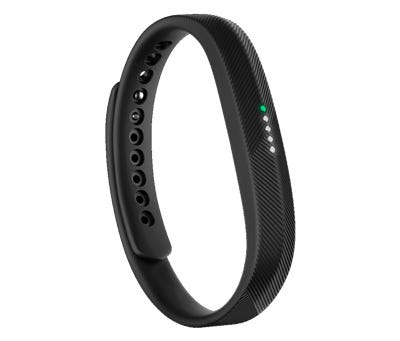Activity Trackers? Studies Say Not That Useful
October 11, 2016
Cash incentives helped motivate some, but motivation slipped after the money ran out.
Nancy Crotti
 A couple of medical studies have called into question the health benefits of wearable fitness devices.
A couple of medical studies have called into question the health benefits of wearable fitness devices.
One of the studies, by the University of Pittsburgh, found that these wearables "are not reliable tools for weight loss," according to a university statement. The other study, conducted by Duke-NUS Medical School in Singapore, found that activity trackers are unlikely to help people become more active, especially given that most stop wearing the devices within a few weeks or months.
The Pitt researchers observed after two years that even when fitness trackers were worn in combination with a behavioral weight loss program, the study participants lost less weight than than those who participated in the behavioral weight loss program alone. In fact, those who did not wear the fitness trackers showed nearly twice the weight loss benefits at the end of the 24 months. Participants who wore fitness devices reported an average weight loss of 7.7 lb, while those who partook only in health counseling reported an average loss of 13 lb. The Pitt study was published in the Journal of the American Medical Association.
The Duke study, published in The Lancet Diabetes & Endocrinology, found that fitness wearables alone or combined with rewards for charity did not increase activity levels. However, money talks, and those who wore the devices and were offered cash incentives "significantly increased activity levels between baseline and six months," the study found. Six months later, the cash group had taken fewer steps than those who wore the trackers without receiving a monetary incentive.
"Despite the step differences, activity trackers, with or without incentives, did not lead to noticeable improvements in health outcomes," the Duke statement said.
The folks at Fitbit begged to differ, noting that a three-year company research study found that those who wore its Aria device lost an average of nine pounds during the first six months. A one-year initiative by Kimberly Clark in 2014 included more than 3400 participants using Fitbit activity trackers and resulted in a total loss of 4998 lbs, among other health benefits, the company noted.
The Pitt study did not include any "modern wearable device," but only those that simply collect data automatically, Fitbit's statement added.
"Most wearables today, including those offered by Fitbit, go far beyond data collection, offering individuals real-time access to their information, insights, motivation from associated social networks, and guidance about their health," the company said. "We would strongly caution against any conclusion that these findings apply to the wearable technology category as a whole."
Wearable manufacturer Jawbone pointed out that there was some weight loss among both groups in the Pitt study.
"Wearable tech helps to bridge the gap between patients who have access to rather intensive weight loss treatments and the very many who don't," said company spokesman Patrick Henkel. "An important factor for us at Jawbone is to motivate users to change behavior."
In the end, such studies will likely do little to sway consumers who aren't motivated to improve their health, said medtech veteran William Betten, director of business solutions at Devicix (Eden Prairie, MN).
"I don't think they're going to have a lot of impact on the sales of the devices," Betten said. "I actually do believe in wearables. "If it gets somebody up and moving and doing something more than they are today, that's a net positive."
Nancy Crotti is a contributor to Qmed.
Like what you're reading? Subscribe to our daily e-newsletter.
[Flex 2 image courtesy of Fitbit]
About the Author(s)
You May Also Like


